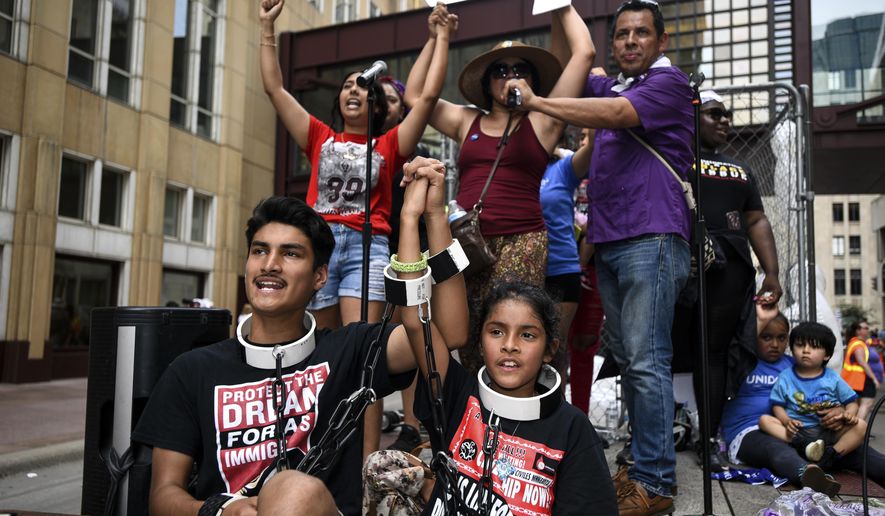
WASHINGTON (AP) - The government’s top health official could barely conceal his discomfort.
As Health and Human Services secretary, Alex Azar was responsible for caring for migrant children taken from their parents at the border. Now a Democratic senator was asking him at a hearing whether his agency had a role in designing the Trump administration’s “zero tolerance” policy that caused these separations.
The answer was no.
“We deal with the children once they’re given to us,” responded Azar. “So we don’t - we are not the experts on immigration.”
Separating families while sidelining the agency responsible for caring for the children was only one example of a communication breakdown in the federal government that left immigrant children in limbo, parents in the dark about their whereabouts and enraged Americans across the country.
Today, the Trump administration is still dealing with the fallout: It’s still not clear how officials will implement the policy or comply with a court order requiring that families be reunited within 30 days.
Instead, the administration is hoping Congress will fix the mess, despite its recent failure to pass immigration legislation.
“We are happy to change the policy when Congress gives us the tools to do it. That’s what we’re asking for,” Marc Short, White House director of legislative affairs, said on MSNBC.
The idea of separating families goes back to the first two months of the Trump presidency. John Kelly, then the Homeland Security secretary, said it could be used as a deterrent. But the notion was quickly dropped, even as President Donald Trump pushed a hard line on immigration, a crucial issue for his political base....
But behind the scenes, senior policy adviser Stephen Miller and others hadn’t given up on the concept. It suddenly reappeared this spring after a persistent spike in illegal crossings. It took the form of the zero-tolerance policy announced by Attorney General Jeff Sessions that requires criminally prosecuting anyone coming to the U.S. illegally. Sessions and others argued families would have to be separated because children can’t go to jail with their parents.How or whether families would be reunited wasn’t much of a concern to the policymakers, according to administration officials and others with knowledge of the discussions who spoke to The Associated Press on condition of anonymity. That lack of planning was evident in an interview Kelly, now White House chief of staff, did with NPR in May.“The children will be taken care of - put into foster care or whatever - but the big point is they (the parents) elected to come illegally to the United States,” he said.The policy sowed confusion and anger not only in the border region, but in Washington. There was a lack of coordination among some of the government agencies involved in the process, the officials said. And there were multiple agencies involved: Customs and Border Protection, part of Homeland Security, detains immigrants. Health and Human Services is responsible for caring
